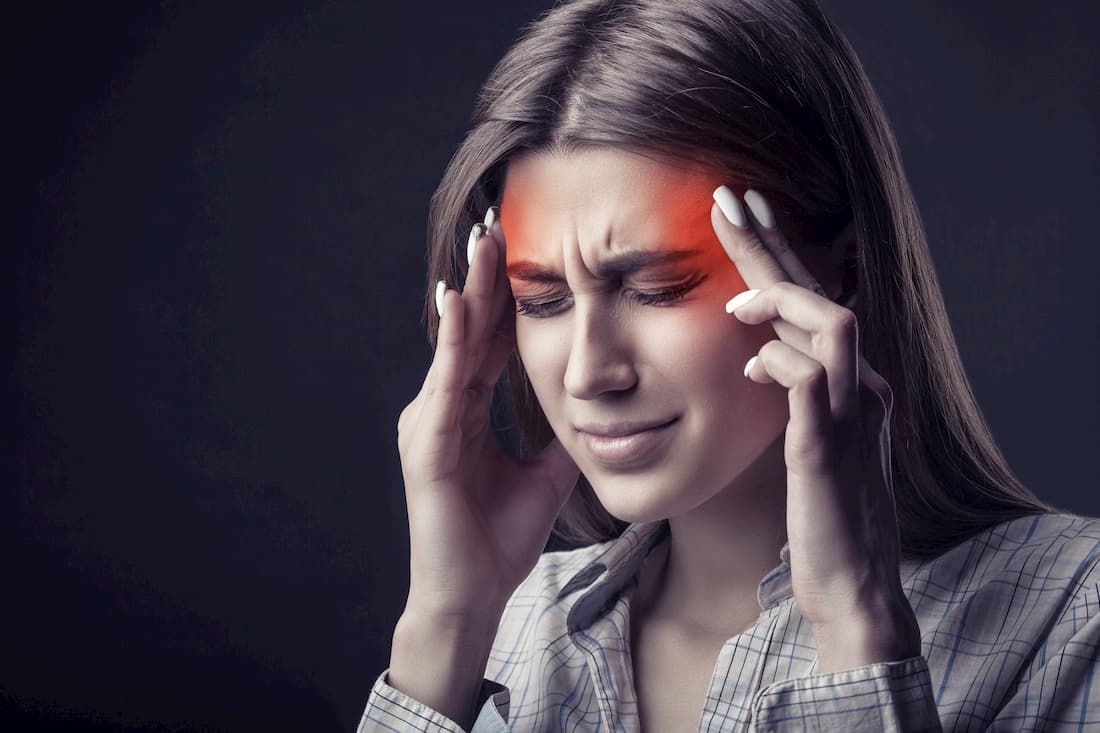
Migraine Symptoms
A migraine is not just a headache, but a whole range of symptoms that can vary from person to person. The main symptoms are:
A severe headache:
It is usually one-sided, but can also be bilateral.
The pain is throbbing or pulsating, sometimes very severe.
It usually lasts from a few hours to 2-3 days.
Nausea and vomiting:
Weakness is a common symptom of migraine. Vomiting is less common, but it does occur in some people.
Sensitivity to light (photophobia):
Migraines are often accompanied by extreme sensitivity to bright light.
Sensitivity to sound (phonophobia):
People who suffer from migraines are very sensitive to noise.
Visual disturbances:
Flickering lights, zigzag lines, or temporary vision loss (called “auras”) may precede the pain.
Dizziness or loss of balance:
Some people experience dizziness, similar to mild vertigo, or even loss of balance during an attack.
Migraine Treatment
Migraine treatment usually involves medication and non-drug interventions. Here are some examples:
Medication:
Pain relievers: Medications such as ibuprofen or acetaminophen can help relieve pain if the migraine attack is not very severe.
Triptans: These are medications that help with more severe migraine attacks, such as sumatriptan or rizatriptan. They help reduce the pain and symptoms of migraine.
Anti-nausea medications: If nausea or vomiting is present, your doctor may prescribe medications to relieve these symptoms.
Anti-inflammatory medications: Medications such as aspirin or naproxen can help reduce inflammation.
Non-drug treatments:
Relaxation techniques: Yoga, meditation, and deep breathing can help reduce stress, which is often a migraine trigger.
Hot or cold compresses: Applying hot or cold compresses to your head can provide natural relief.
Cognitive behavioral therapy: This method can help reduce the frequency of migraine attacks by reducing stress and anxiety.
Preventing migraines
Preventive measures can help reduce the frequency and intensity of migraine attacks. Here are some tips:
Sleep regularity:
A disturbed sleep pattern can trigger migraine attacks. Try to get 7-9 hours of sleep a night and go to bed at the same time every day.
Avoiding triggers:
Foods such as chocolate, alcohol, coffee, cheese, or red wine can trigger migraines.
Stress is a major trigger for many people, so it is important to manage stress through relaxation.
Regular physical activity:
Moderate physical activity, such as walking or yoga, can help maintain health and reduce the risk of attacks.
Medications to prevent migraines:
In some cases, your doctor may prescribe medications to reduce the frequency of attacks. These may include beta-blockers, antidepressants, or anti-seizure medications.
Keeping a migraine diary:
Writing down when and what might trigger an attack can help you understand triggers and prevent them in time.
Doctor-neurolog Natalija Yuvchenko
Addition information:
Leave your email
and we will contact you soon